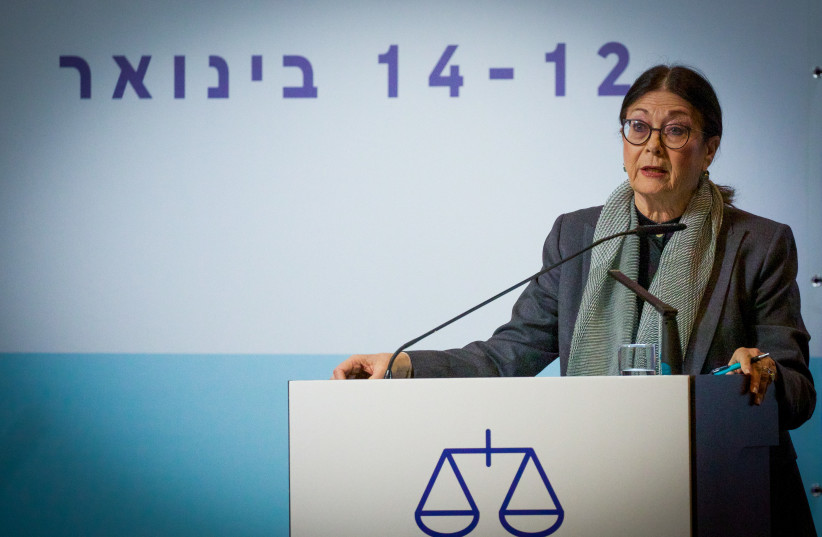The High Court of Justice rejected on Sunday a petition claiming that President Esther Hayut is in conflict of interest by presiding over a hearing on the Law to Cancel the Reasonableness Standard.
The Lavi NGO petitioned the High Court on Thursday arguing that Hayut had expressed bias against the Law to Cancel the Reasonableness Standard at a January 12 conference. Hayut had said that amendments to the Basic Law: The Judiciary would damage the justice system.
At the time there was no reasonableness bill in the legislative process. The NGO argued that a justice should only have formulated their position on a matter after hearing arguments.
Did Israel's High Court chief show bias?
The High Court said that real bias had to be demonstrated, and that only in rare and exceptional cases would a judge be considered biased. The court doubted that Hayut's broad remarks constituted such a rare and exceptional situation.
The petition was also rejected because such complaints should usually be directed first to the judge alleged of bias before turning to the court.

Likud MK Boaz Bismuth said that it wasn't surprising that the High Court had rejected the petitions, and that her fellow justices had defended her with technical excuses.
"What isn't done to prevent the elected Knesset from carrying out the will of the people?" Bismuth wrote on Twitter.
Likud MK Avichay Buaron said that Hayut discussing the case despite having already publicly revealed her position would damage public trust in the High Court. Trust could only be restored with a balanced Judicial Selection Committee.
Buaron called for the reasonableness law petition respondents "to immediately request the disqualification of Hayut."
The Law to Cancel the Reasonableness Standard saw dozens of petitions filed calling for its cancellation following its passing on June 24. Petitioners have argued that the law, which prevents judicial review of full government and ministerial administrative decisions, was improperly legislated and against constitutional norms.
The Israel Medical Association filed its own petition against the reasonableness law on Sunday, calling for the law not to apply specifically to the medical system.
The medical system requires the exercise of professional medical judgment and analyses, and government decisions not guided by the reasonableness standard would have severe consequences for patients and doctors.
Reasonableness doctrine previously required the government to explain the rationale behind their administrative decisions, and the association expressed concern that the government could give orders not guided by professional considerations but motivated by politics, religion, or ideology.
The government also no longer needed to explain appointments or dismissals, potentially leading to unprofessional officials being tasked to oversee the medical system, the petition argued. The medical system could also see the system losing the independence to make medical policy prescriptions, information being hidden from the public, or incorrect information being spread.
These conditions damage basic rights derived from Basic Law: Human Dignity and Liberty and Basic Law: Freedom of Occupation including the right to health, life, and bodily integrity.
The hearing on reasonableness is set for September 12, and for the first time ever will have all 15 justices presiding over a case. The expanded bench shows not just the controversial nature of the judicial reform law itself, but the immensity of the decision facing the justices. The High Court has never before struck down a basic law amendment, and it is hotly debated if the judiciary has the authority to do so. Striking of a basic law or amendment could result in a constitutional crisis, in which it is legally unclear who has authority over a situation.
